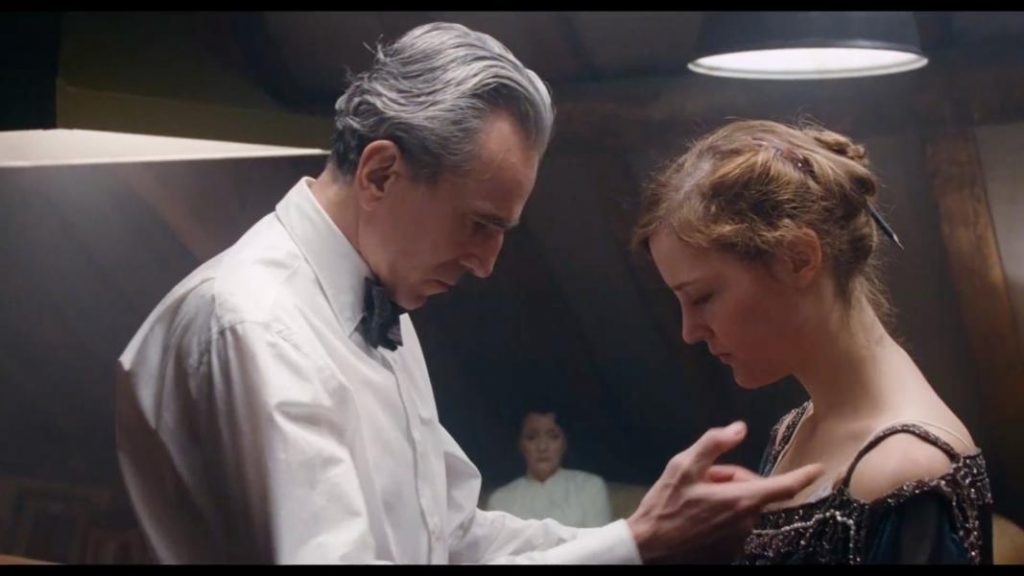Reviewed by Rachael Kaines
Not quite the harrowing experience some might be expecting, Phantom Thread is closer to a perverse romantic comedy than a serious or dark drama. If the idea of watching people throw beautiful barbs at each other over a breakfast table sounds appealing, then Phantom Thread is your film.
The film follows Reynolds Jeremiah Woodcock (Paul Thomas Anderson writes the most perfect names), played by Daniel Day-Lewis in what is said to be his last acting role. Woodcock is a haute couture fashion designer living in London in the 1950s, he lives a structured and severe life that keeps his demanding work centre stage in his life. Lesley Manville plays his sister, Cecil, who lives with him and facilitates his artistic endeavours as best she can, as well as running the business and ensuring his morning meals are undisturbed. When Woodcock meets Alma, a waitress, he immediately falls for her. The strong-willed Alma becomes the latest in Woodcock’s long line of muses, inspiring him to make dresses before the inevitable apathy sets in.
Daniel Day-Lewis stuns as always, but perhaps what is even more delighting is that Vicky Krieps and Lesley Manville parry beautifully. The score is beguiling, and not as patently from Johnny Greenwood as his other scores, but more fitting to the faux costume drama world of Phantom Thread.
For something that could on the surface appear stuffy or austere, a period drama or perhaps a romantic epic, Phantom Thread is undeniably fresh. Even whilst making plot moves that would be cliche in anyone else’s hand, Anderson effortlessly manages to make everything new. The sumptuous visuals feel different to other Anderson films, we’re allowed to feel the beauty, even if it has a sordid edge. These visuals are enchanting, the camera spins and the colours hypnotise the score lulls.
Food is essential in Phantom Thread, and stands in for everything from desire, to domination, to distaste. Battles are fought and won or lost over the breakfast table with barely a word uttered, in a playful series of power plays.
Ultimately, Phantom Thread is thoroughly entertaining and about as accessible as a Paul Thomas Anderson film gets. The performances of the three leads, coupled with the unusual and facetious story, beautiful cinematography, and sublime score makes Phantom Thread a masterpiece you may be able to show your mother.
